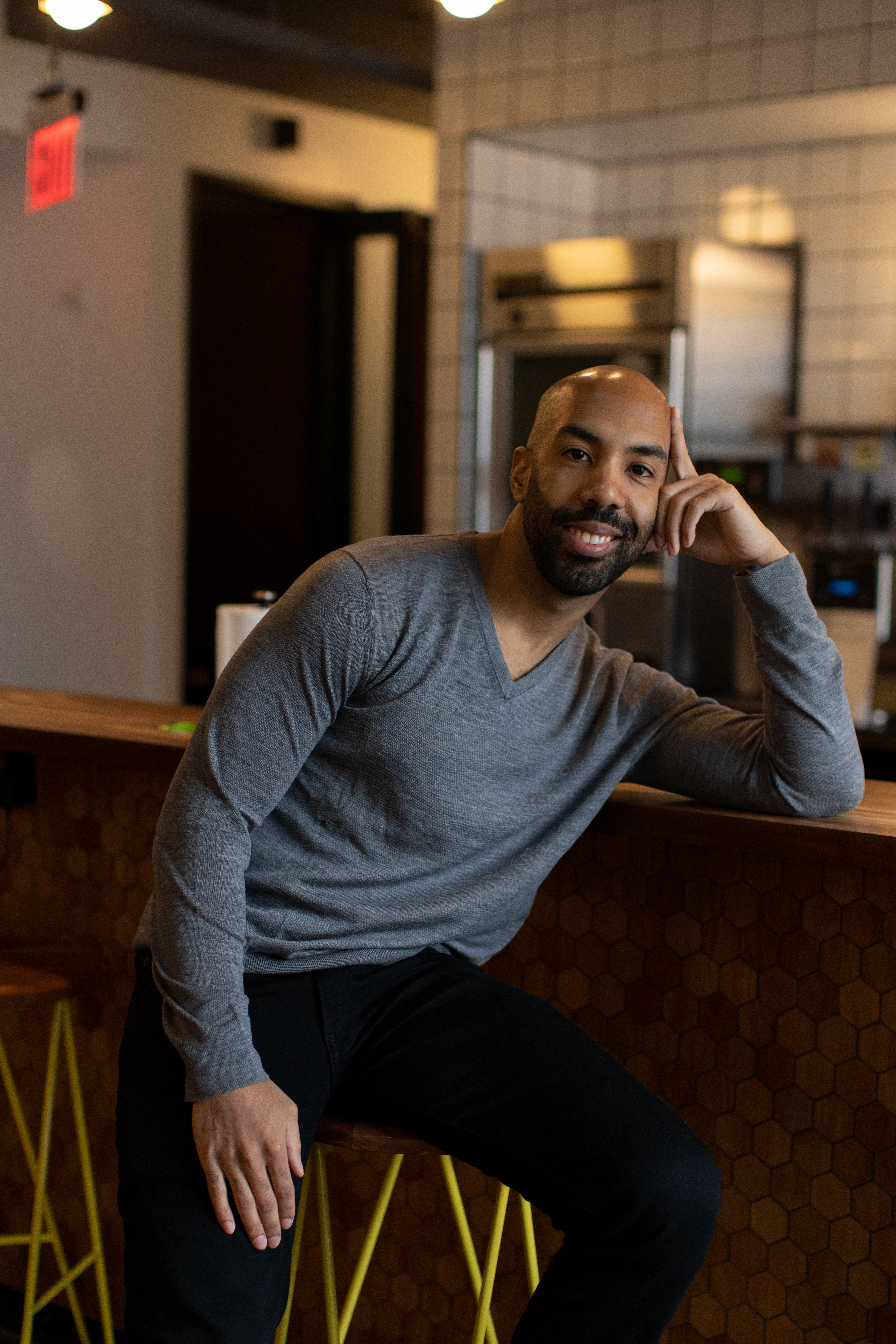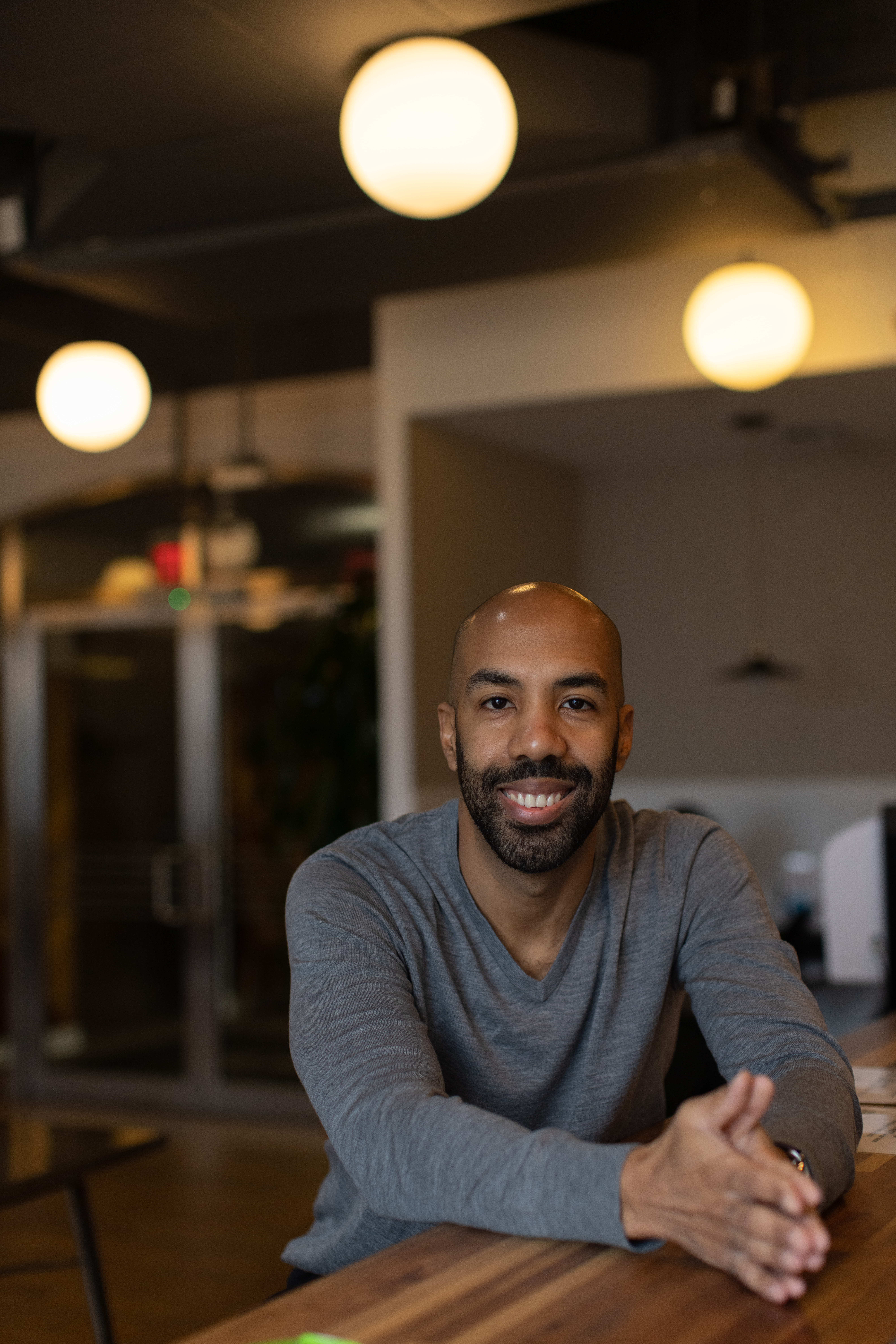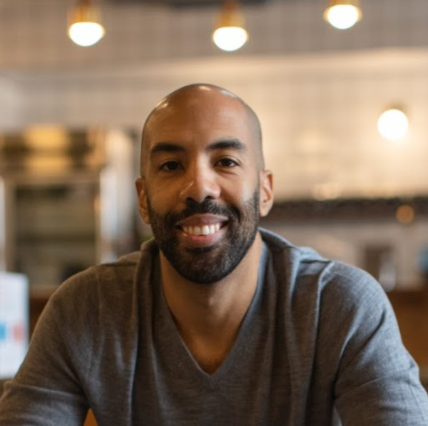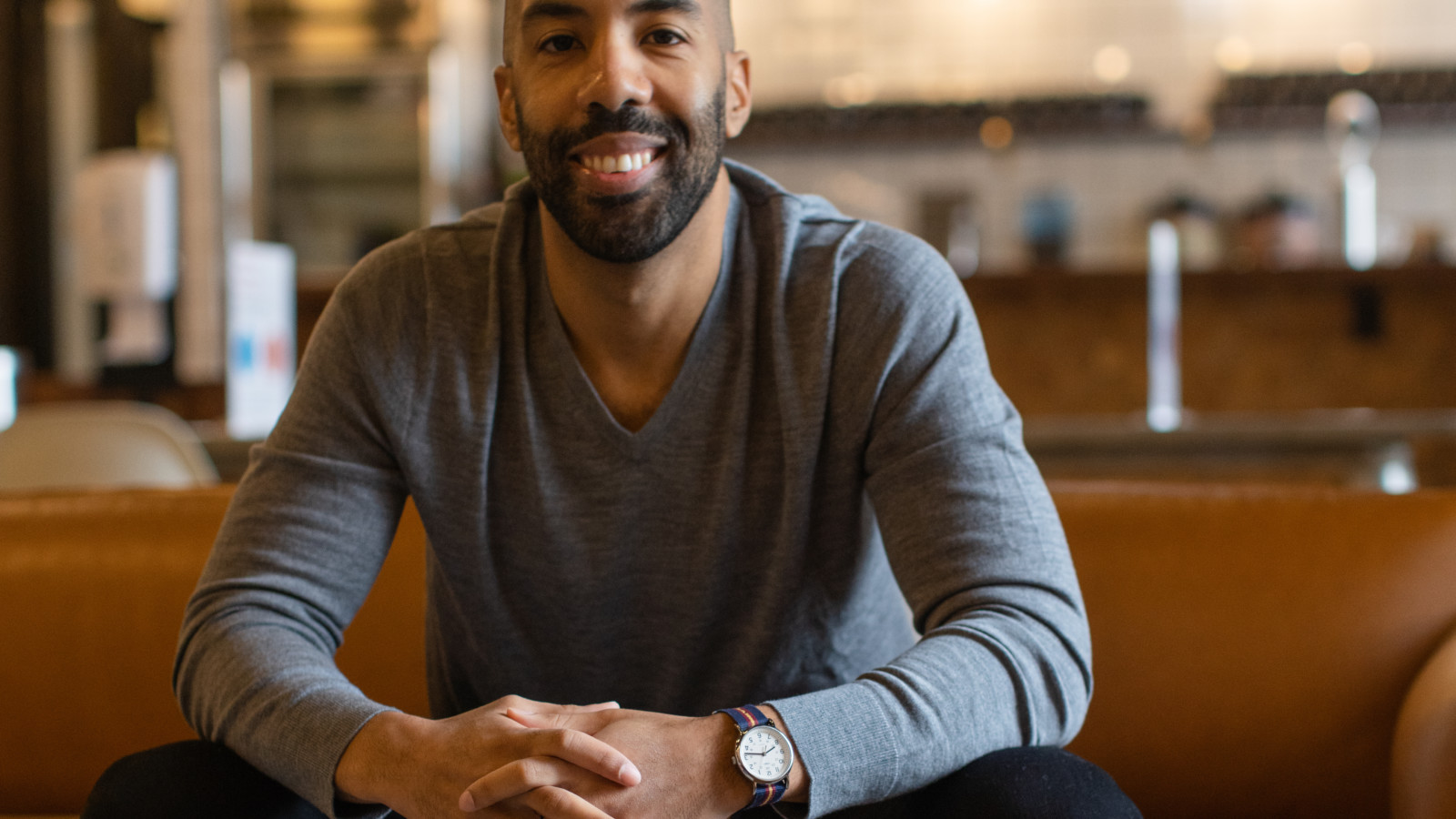Welcome to Transparent, a photo editorial series profiling Black mental health advocates who are breaking down barriers, increasing transparency, and changing the way mental health is perceived in the Black community. Salesforce and Thrive Global, with support from KPMG, have partnered to make change: to bring about positive mental health conversations in the Black community, to share strategies for seeking help, and to prioritize mental well-being.
By James Edward Murray, as told to Thrive Global Studios
My dad was a Baptist minister. He died when I was 12-years old, but I remember him always portraying strength. He was a disciplinarian and didn’t encourage me to be vulnerable. Even though he was diagnosed with colon cancer around the time I was born, I never saw him display a sense of emotion or sadness. He always came through as strong, so I thought I had to be like that as well — as many Black men do.
Growing up, my mom would always take time to meditate. She used it as a tool to navigate her grief, but I’d watch her and think it was weird, or I’d be annoyed that she wasn’t giving me more attention. I didn’t see that she was using meditation as a tool.
Years later, I was in a situation where I lost the things that made up my world. The company I founded — a news aggregation platform — was struggling, and I was simultaneously going through a tough breakup. I’d get swept away by negative thoughts, but wouldn’t reach out to friends because I didn’t want them to think, ‘Oh, James doesn’t have it together.’
So I started exploring meditation — I took the example from my mama. Meditation helps me stay centered and present. I try to meditate for 10 minutes every day; when I meditate in the morning, I have a better day. I also started going to therapy. I never thought I’d need to seek professional help, but when I lost my work and my partner, I was in this dark place that I didn’t know how to get out of on my own. Therapy helped bring me out of that dark place.
In the process of finding a therapist, however,I learned that it’s difficult to find a culturally informed therapist who understands how race impacts your mental health. For people of color, we have to explain our experience as a Black or brown person before we can get to the meat of working through our issues. It was tough for me to find someone who understood my lived experience. I went through a few different therapists before I found someone who I felt comfortable with, who understood my experience as a Black man. Once I found that good fit, I opened up more and I started to get more out of each and every therapy session.

The entrepreneur in me wanted to do something about those barriers and help people to seek help. We’ve hosted dinners with Black men in DC and New York that serve as a safe space to open up and break down those walls of holding in our emotions. We’re creating a video series called Thera Talks, where licensed Black and brown therapists break down issues relevant to first-time therapy seekers. There’s no playbook for seeking mental health care, and because we’ve found that BIPOC are less likely to seek help, we want to provide them with the playbook. We want to help them understand how to get help, and help them execute on doing that.
“There’s no playbook for seeking mental health care, and because we’ve found that BIPOC are less likely to seek help, we want to provide them with the playbook.”
If I could speak to my younger self, I’d tell him to start prioritizing his mental health at an earlier age. For the longest time, I thought I could just work through things on my own and not talk about losing my dad. I didn’t understand how much it would impact me as a young Black man growing up without his dad. That’s why I’ll keep being vocal and vulnerable with others about my experience. I think people are encouraged to deal with their issues when they see people who look like themselves dealing with theirs. I want to keep advocating for others who are exploring their own healing.



